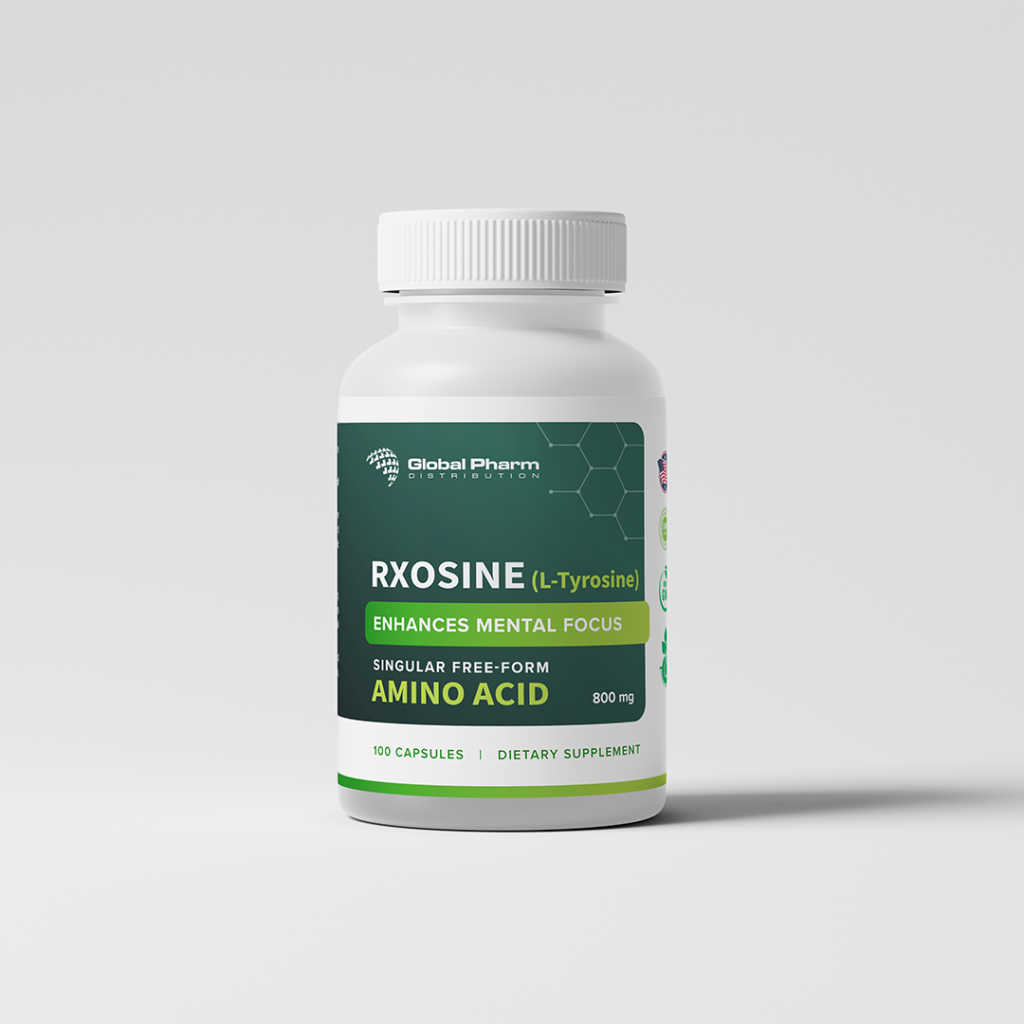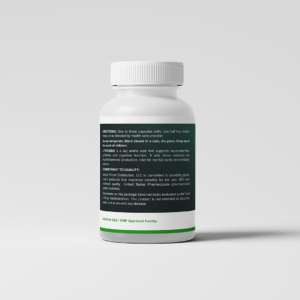Description
NDC: 53335-104-14 (capsule), 53335-098-29 (powder)
Weight: 4 Oz
L-Tyrosine is a non-essential amino acid that serves as a precursor to neurotransmitters dopamine, norepinephrine, and epinephrine, playing a vital role in mood regulation, cognitive function, and stress response. It supports thyroid hormone production, enhancing metabolism, and may improve mental performance under stress or fatigue. L-Tyrosine also aids in the synthesis of melanin, supporting skin and hair pigmentation, and is particularly beneficial during periods of acute stress or sleep deprivation. Research highlights its effectiveness in enhancing cognitive resilience (e.g., Deijen et al. 1999).
L-Tyrosine is particularly beneficial for individuals seeking to boost mental clarity, manage stress, or support metabolic health under demanding conditions. Manufactured using premium pharmaceutical-grade materials in a GMP-approved facility in the USA, L-Tyrosine is free of fillers, binders, or coloring agents, with no known side effects when used as directed.
Directions: Take 1-3 capsules daily or as advised by your healthcare provider. Pair with vitamins and minerals; GPD’s MVM (Multivitamin) is recommended. Powder equivalent: 1/4 level teaspoon per capsule.
Key Benefits
- Supports Mood and Cognition: Precursor to key neurotransmitters.
- Enhances Stress Response: Improves mental performance under stress.
- Promotes Thyroid Function: Supports hormone synthesis.
References
- Deijen JB, et al. (1999). “Tyrosine improves cognitive performance and reduces blood pressure in a stressful environment.” Physiology & Behavior, NIH.
- Wurtman RJ, et al. (1981). “Effects of oral administration of tyrosine and phenylalanine on plasma precursor levels.” Journal of Clinical Investigation, NIH.
- Banderet LE, et al. (1989). “Treatment with tyrosine, a neurotransmitter precursor, reduces environmental stress in humans.” Brain Research Bulletin, NIH.
- Lehnert H, et al. (1984). “Neurochemical and behavioral consequences of acute, uncontrollable stress: Effects of dietary tyrosine.” Life Sciences, NIH.
These statements have not been evaluated by the Food and Drug Administration. This product is not intended to diagnose, treat, cure, or prevent any disease. Consult a doctor or medical professional before use, especially if you have underlying health conditions or are taking other medications.
Additional Information The following points provide insight into L-Tyrosine’s plasma levels and their association with various health conditions, reflecting its role in metabolism:
- Normal Range: 40-120 µmol/L (approximate clinical range).
- Conditions Associated with Low Levels:
- Phenylketonuria (PKU, impairing tyrosine synthesis from phenylalanine)
- Chronic stress or fatigue (increased neurotransmitter demand)
- Hypothyroidism (reduced thyroid hormone synthesis)
- Conditions Associated with High Levels:
- Excessive supplementation (from overdosage or dietary excess)
- Liver dysfunction (impaired tyrosine metabolism)
- Tyrosinemia (genetic disorder causing tyrosine accumulation)
- Notes: L-Tyrosine is a non-essential amino acid critical for neurotransmitter production (dopamine, norepinephrine, epinephrine), supporting mood, cognition, and stress resilience. It aids thyroid function and melanin synthesis, with benefits during mental or physical stress. Low levels may indicate metabolic disorders or stress, while high levels can result from supplementation or genetic conditions. These associations are correlative and require further research for causal confirmation. For more technical information, please click here. Consult a doctor or medical professional before use, especially if you have underlying health conditions or are taking other medications.
 Global Pharm Distribution, LLC
Global Pharm Distribution, LLC




